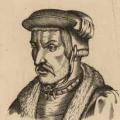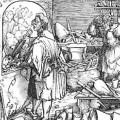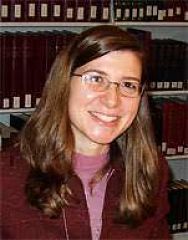387. Helen Hattab on Protestant Philosophy
Posted on
An interview with Helen Hattab on the scope and impact of scholastic philosophy among Protestants.
Themes:
Further Reading
• H. Hattab, Descartes on Forms and Mechanisms (Cambridge: 2009).
• H. Hattab, “Aristotelianism and Atomism Combined: Gorlaeus on Knowledge of Universals,” Perspectives on Science 24 (2016), 285-304.
• H. Hattab, “Early Modern Roots of the Philosophical Concept of a Law of Nature,” in W. Ott and L. Patton (eds), Laws of Nature (Oxford: 2018),18-41.
• H. Hattab, “The Metaphysics of Substantial Forms,” in B. Hill and H. Lagerlund (eds), The Routledge Companion to Sixteenth Century Philosophy (London: 2017), 436-57.
• H. Hattab, “Hobbes’s Unified Method for Scientia,” in M.P. Adams (ed.), A Companion to Hobbes (London: 2021), 25-44.







Comments
Philosophy in the Spannish viceroyalties
Hi Peter! I'm an admirer of your great podcast. I want to thank you for it because it has helped me in many ways.
Currently I'm listening to the formative period of the islamic world, so I don't know if you have already mentioned this, but I was wondering if you were going to cover the philosophical activity in the spannish viceroyalties.
If not, it would be cool if you devoted at least one episode (maybe parallelly with Suárez and Molina) to figures like Alonso de la Vera Cruz, Juan de Espinosa Medrano, Ildefonso Peñafiel, Bartolomé de las Casas, Sor Juana Inés de la Cruz, etc. because there are so many philosophers in this period and little is talked about them. Furthermore they were the basis of the philosophy in spannish-speaking countries (which is most of territory in America).
Again thanks for your great work!
In reply to Philosophy in the Spannish viceroyalties by SocraticPlato
Ask and you shall receive
Oh indeed! That will be part of the current series when I cover the so-called "Counter Reformation". More info on my plans here:
https://historyofphilosophy.net/what-to-expect-reformation
Peter, this is a great…
Peter, this is a great episode. One is jealous of Hattab's learning, and the idea that Protestant thinking not only paved the way for the separation of public and private, as you mentioned in an earlier episode, but for the conception of space as occupied by bodies, is exciting.
Add new comment